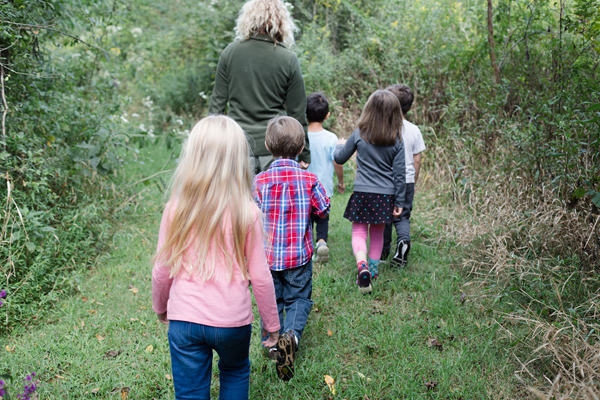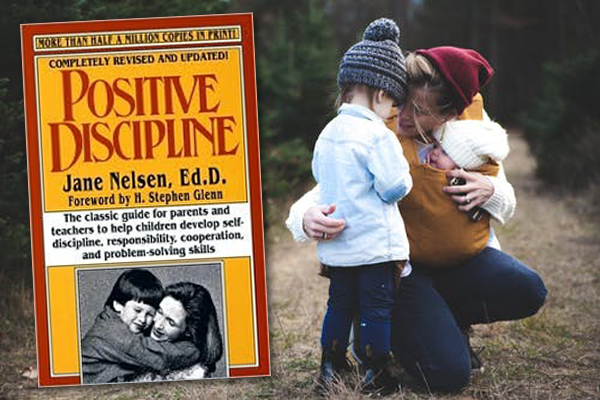
Photo courtesy of Bambini Village Montessori School
Parenting is hard. Just when you think you have it all figured out, your child enters a new developmental phase with its own new sets of challenges and lessons.
Parenting through a pandemic creates additional challenges along with worries about future impacts of all that we have been through. It can be overwhelming and can make our focus veer in unplanned directions every day. When we are balancing so many challenges and burdens, we can forget about all the beautiful things that we want our children to learn. We can forget that we are making decisions each day that will shape and forge our adult children of the future.
Fast forward 15 to 20 years; what type of person do you want to see walking through your door coming home for the holidays? Are your daily parenting decisions creating the path helping your child become that future adult you hope to see? These can be hard questions, especially when there are so many obstacles to overcome each day. We must, however, stay the course. We must decide the type of parenting foundation that we wish to have and make an intentional effort to make decisions that support that foundation along with the developmental needs of our children.
As a director of a Montessori school, the question that I am asked most frequently is how to get children to behave better. Montessori classrooms are often known for their peaceful and tranquil environment, an environment that supports children’s development of independence and confidence. Children in Montessori schools do not have sticker charts or time-outs, so how does that peaceful atmosphere last with children ages 3 through 6? How do we help to develop positive behaviors in children?
The answer is: positive discipline.
Positive discipline is a parenting strategy that combines being both firm and kind. It is about having “tools” to help develop good choice-making skills in children, and about having and maintaining appropriate parental boundaries (i.e. being parents, not friends, to our children).

One of the most important components of the positive discipline parenting philosophy is the ability to be both firm and kind when guiding our students and children. Parents that are too kind, will often have challenges gaining cooperation and respect from their children. Parents that are too firm will often find that their children rebel or comply out of fear or from threats instead of developing the ability to make good choices. The key, according to Dr. Jane Nelsen, the creator of the positive discipline philosophy and author of the book Positive Discipline, is the balance of being kind and firm at the same time. How does this translate into daily interactions with your child? Effective parents try and stay ahead of the curve, understanding and researching what developmental phases their child will be entering next. By having the information on the front end, parents can shift from a place of reactive parenting to a place of proactive parenting. Learning new strategies that are effective and supportive of your child’s behavioral goals is a way to incorporate positive discipline into your home. As our children grow and develop, our parenting strategies will need to grow as well.
As our children returned to their school campus in September after quarantine while still living through the pandemic, our teachers discussed how we were going to help our students return to joyful learning and living. Of course, their academic education is important, but joyful and happy children are eager to learn and it shows. We made it our mission this year to help our students return to some of that joy. Some of the ways that we approach joyful learning with our students include many of the positive discipline strategies and framework for parenting along with our Montessori ideals.
These include:
– Connection before correction (validate your child’s feelings before offering correction)
– Positive time-outs
– Boundaries that are consistent, respectful, and enforced
– Good and balanced nutrition daily
– Solid sleep routines (with the recommended amount of sleep each night)
– Unstructured playtime
– Outdoor playtime (children should have plenty of movement and outdoor play daily, even in cold and rainy conditions)
– Limited use of screens (for those in virtual school, this can be a challenge, but it is important to continue to limit use of screens and implement regular playtime in your child’s free time)
– Uninterrupted quality time with parents or caregivers (children need dedicated, one-on-one attention each day with their parents or caregivers) Even if it is only 15–20 minutes of uninterrupted time, your child will benefit from this. Sometimes, when a child is acting out, it is a clue that they actually need more of your attention, not less.
Good caregivers understand how these components directly impact a child’s joyfulness. Sometimes we forget that we as parents are in charge and that the decisions that we make with our children will ultimately guide and develop the people that they will become.
Next time, we will look at specific positive discipline tools that can be used to help gain cooperation with your child along with the language of this philosophy of parenting.












